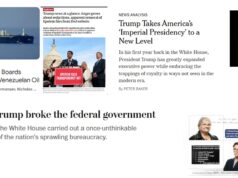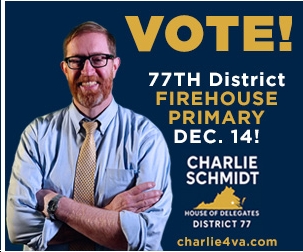by Freeda Cathcart, Soil and Water District Director representing Roanoke City
Delegate Shelly Simonds’ bill, HB357, barely survived the 2024 General Assembly, being “continued” to 2025, placing this crucial legislation – which would “[Direct] the Department of Environmental Quality [DEQ] to establish a work group to develop (i) strategies for protecting the existing tidal and nontidal wetlands of the Commonwealth and (ii) plans for wetland restoration and creation to address losses and adverse impacts from human activities and climate change.” – in legislative purgatory. That’s very unfortunate, given the crucial importance of wetlands to all the species – humans included – who depend on them.
Fortunately, there are federal and state laws that already protect wetlands because of their importance to supporting the environment (according to the EPA, an acre of wetlands can store between 1-1.5 million gallons of water). And of course, the climate emergency requires the wise stewardship of wetlands.
Unfortunately, with Virginia being a “buyer beware” Commonwealth, there is no requirement that property owners or localities inform potential buyers and developers that there are wetlands on a property. This means that developers can waste their time and money when a locality’s zoning makes it appear that a development can happen in a place where regulations prevent that possibility.
A recent Roanoke City controversy over the potential development of the Evans Spring wetlands provides an example of why the DEQ needs to develop a strategy to collaborate with local governments to protect wetlands and the public. Early collaboration and guidance provided by the DEQ would have helped Roanoke City create a realistic plan for the area by including the fact that wetlands were present. Developers need to know that the wetlands need to be delineated and evaluated to determine what parts of the land can be developed.
The Roanoke City 2013 Evans Spring Development plan included a disclaimer about the presence of wetlands:
”A detailed master plan will ultimately be needed before development begins and will likely be required when the property is rezoned. Development around Lick Run and the former Fairland Lake site will entail an extensive review process. This is due to the existence of the flood plain and wetlands on the land. The state and federal agencies involved in this process include:
• The Army Corps of Engineers
• The Federal Emergency Management Agency (FEMA)
• The Virginia Department of Environmental Quality (DEQ)
• The Virginia Department of Conservation and Recreation (DCR) Much of the site analysis and engineering will take place while working through this process. The City will not approve a development plan until all required state and federal permits are secured.”
However, the recently revised and approved 2024 Evans Spring Development plan included commercial and residential development – but did NOT include the disclaimer warning potential developers that crucial work needed to be done to see if development was even possible in that location. Since state and federal laws protect the function of the wetlands, there probably aren’t many developable parcels in the Evans Spring area.
The Roanoke City Council can still correct this mistake by adding the disclaimer back into the revised plan. People can use this easy portal to send an email to the Council members to ask them to amend the Evans Spring plan. This would help developers trust that Roanoke City is being transparent about the challenges of developing the property so they can evaluate the possibility if a development would be successful.
A few years ago, a North Carolina developer spent time and money developing a concept plan for an apartment complex upland from a tributary to the Roanoke River. They even started the testing to procure the stormwater permit – and then they pulled out of the project. Conjecture is that the stormwater regulations would have been cost prohibitive to achieve a successful development. This illustrates the importance of local zoning matching what is possible as governments respond to the climate emergency.
The Commonwealth can assist localities by funding a DEQ working group to develop a strategy to help them learn about state and federal funding to transform wetlands into beneficial nature parks to protect sensitive habitats. Please contact your state legislators to ask them to support HB357.













![Video: Sen. Tim Kaine on “Meet the Press” Says DoJ Not Complying with the Law on Release of ALL the Epstein Files, But Argues “I think [impeachment/contempt for DoJ officials is] premature”](https://bluevirginia.us/wp-content/uploads/2025/12/kainemtp1221-100x75.jpg)

![Video: Rep. James Walkinshaw (D-VA11) Says “It’s enormously frustrating,” as “the law is clear…the full files were supposed to be released [yesterday] and the Trump administration is not in compliance with that law”](https://bluevirginia.us/wp-content/uploads/2025/12/walk1219-100x75.jpg)